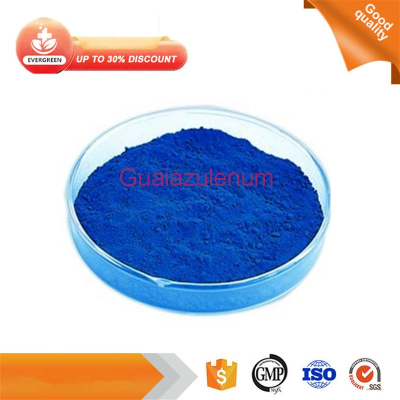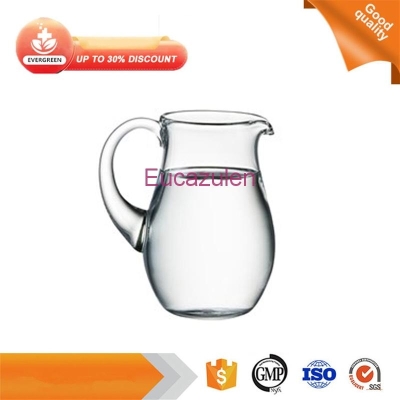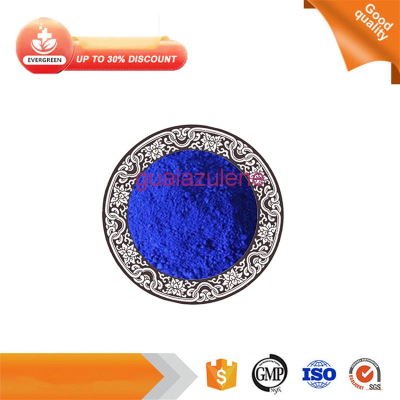-
Categories
-
Pharmaceutical Intermediates
-
Active Pharmaceutical Ingredients
-
Food Additives
- Industrial Coatings
- Agrochemicals
- Dyes and Pigments
- Surfactant
- Flavors and Fragrances
- Chemical Reagents
- Catalyst and Auxiliary
- Natural Products
- Inorganic Chemistry
-
Organic Chemistry
-
Biochemical Engineering
- Analytical Chemistry
- Cosmetic Ingredient
-
Pharmaceutical Intermediates
Promotion
ECHEMI Mall
Wholesale
Weekly Price
Exhibition
News
-
Trade Service
Dicerna Pharmaceuticals has teamed up with Roche to develop RNAi therapy RG6346 for chronic hepatitis B virus (HBV) infection, the latest results of which are published in a Phase 1 clinical trial.
results showed that RG6346 treatment, once a month, a total of four times, led to a significant and persistent reduction in biomarkers of HBV disease activity.
HBsAg levels can be continuously reduced for up to 1 year after the last drug is given.
study opens the door to clinical applications of RNAi.
, RNAi-type drugs have achieved extraordinary results in areas such as hepatitis B and blood lipid reduction.
hepatitis B virus (HBV) infection is the most common serious liver infection in the world.
the World Health Organization (WHO) estimates that there are more than 292 million people with chronic hepatitis B worldwide.
it kills more than 800,000 patients each year.
HBV is also the leading cause of liver cancer, which is the second leading cause of cancer death in the world.
existing treatments for hepatitis B can suppress the replication of HBV, but rarely achieve long-term "functional cure" effect.
is difficult to cure because HBV is able to produce co-priced closed ring DNA (cccDNA) and integrated sequences in the nucleus of infected cells.
the half-life of these sequences is very long, and current standard therapies do not effectively remove cccDNA.
RG6346, developed by Diperna, is capable of producing an RNAi that targets specific regions of the HBV genome and specifically knocks down the genes needed for HBV mRNA production and HBV entry into cells.
in preclinical studies, this RNAi was able to reduce HBsAg levels in animal models by 3.9 log10.
In this Phase 1 clinical trial, 18 patients with chronic hepatitis B who took nucleoside (acid) (NUC) antiviral therapy were divided into three groups, each once a month, receiving different doses of RG6346 injections for a total of 4 months, with different doses of RG6346 or placebo treatment.
patients receive RG6346 once a month for a period of 4 months.
they are eligible for long-term follow-up if their HBsAg antigen levels are reduced by more than 1.0 log10 IU/mL (1.0 log 10 equals 10 times) compared to the baseline at the end of the course.
11/12 (92%) of the subjects who received RG6346 combined NUC antiviral therapy had an average HBsAg reduction of more than 1.0 log10 IU/mL over the baseline on the 112th day (1 month after the last RNAi was given).
patients treated with RG6346 at a dose of 3 mg/kg (n=4) had an average HBsAg level of 1.80 log10 lower than the baseline, and patients treated at RG6346 at a dose of 6 mg/kg (n=2) had an average HBsAg level of 1.84 log10 lower than the baseline.
the absolute level of HBsAg was also below 100 IU/mL in 7 (58%) of the 12 subjects.
this level is associated with a reduced risk of progression for cirrhosis and hepatocellular carcinoma.
Among subjects eligible for continued long-term follow-up, the longest follow-up patient queue (dose 1.5 mg/kg; n=3) was 448 days (1 year after the last RNAi administration) The HBsAg level of was reduced by an average of 1.40 log10 IU/mL relative to the baseline, and in one case the HBsAg level decreased by more than 2.0 log10 IU/mL on the 448th day.
RG6346 significantly and persistently reduced HBsAg levels: left, HBsAg decreased multiples compared to baselines;
the safety and tolerance of the drug is good.
previously, GlaxoSmithKline (GSK) owned a 2-MOE modified antisant oligonucleotide drug for all HBV RNA, and some Phase 2a studies have shown that HBsAg levels can be reduced in some patients with slow hepatitis B primary treatment.
results showed that the horizontal self-baseline changes of hepatitis B surface antigen (HBsAg) were -1.556±1.379 (P-0.001) and 0.001, respectively, compared to the 300 mg/sub-GSK836 treatment group (12 cases) and the placebo group (6 cases). 000±0.112 log IU/mL, HBV DNA level changes from baseline to -1.655±1.479 (P.lt;0.001) and -0.001±0.471 log IU/mL, respectively.
about RG6346 RG6346 is a GalXC™RNAi research candidate developed in collaboration with Roche to study chronic HBV infection.
Diperna is currently conducting a Concept Phase 1 trial of RG6346 in adult patients with chronic HBV infection with non-cirrhosis.
If taken continuously, current HBV treatments, such as nucleoside analogos, provide long-term viral inhibition, but they rarely lead to long-term functional healing (DNA) inhibition of the patient's plasma or blood, as measured by HBV surface antigens (HBsAg) and ongoing HBV DNA removal rates.
, RG6346 is designed to use RNAi to selectively knock down specific genes involved in the production of HBV messenger RNA (mRNA) and the entry of viruses into liver cells.
as observed in the HBV-infected mouse model, preclinical data showed a reduction of more than 99.9% in circulating HBsAg.
treatments that normally inhibit the virus in the long term, we believe RG6346 has the potential to provide functional therapy for patients with chronic HBV.
: Dicerna Announces Positive Updated Data From Phase 1 Trial of RG6346 for Treatment of Chronic Hepatitis B Virus (HBV) Application at AASLD's Liver The Meeting® Digital ™ 2020. Retrieved November 16, 2020, from HBV RNAi reseedor RG6346 in Phase 1b-2a trial was safe, well-monthd, and resulted in large and longard reductions in serum HBsAgs. Retrieved November 16, 2020, Network Source: Web Copyright Notice: All text, images and audio and video materials on this website that indicate "Source: Mets Medicine" or "Source: MedSci Original" are owned by Mets Medicine and are not reproduced by any media, website or individual without authorization, and must be reproduced with the words "Source: Mets Medicine".
all reprinted articles on this website are for the purpose of transmitting more information and clearly indicate the source and author, and media or individuals who do not wish to be reproduced may contact us and we will delete them immediately.
at the same time reproduced content does not represent the position of this site.
leave a message here







